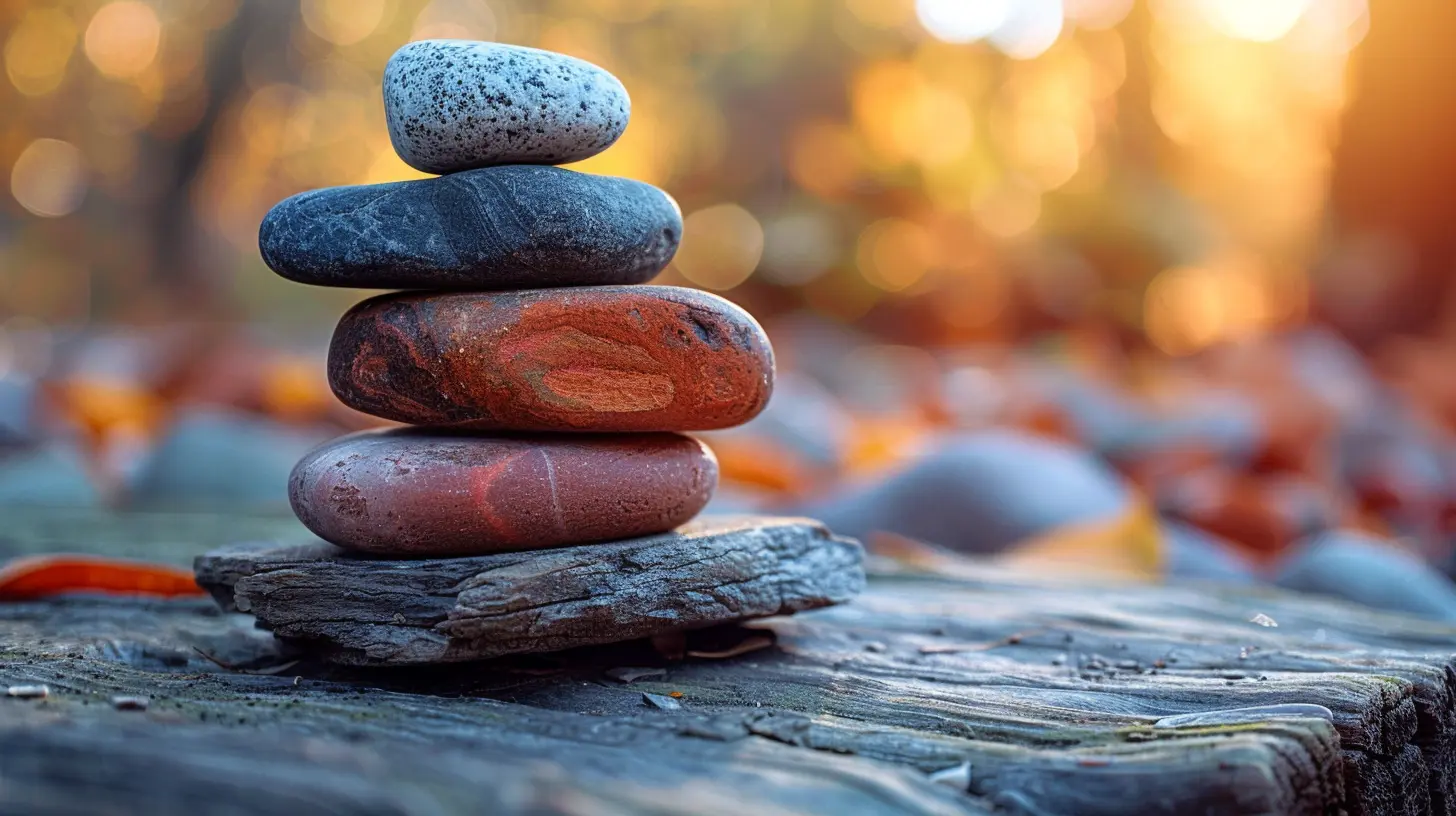Balancing Hormones Through Mindfulness and Meditation
29 June 2025
Hormones—those tiny chemical messengers in our body—are like the conductors of a grand orchestra. They regulate everything from your mood and energy levels to sleep and even digestion. But what happens when that orchestra is out of tune? Chaos, right? You might feel stressed, sluggish, moody, or have trouble sleeping. The good news? You don’t need to rely solely on pills or expensive therapies to bring harmony back into the mix. Mindfulness and meditation could be your secret weapons for balancing hormones naturally.
Let’s dive into how these practices can help your body find its rhythm again. 
What Are Hormones and Why Are They So Important?
Before we get into the juicy details of mindfulness and meditation, let’s quickly review what hormones actually do. Think of hormones as text messages your brain and body send to each other. They work behind the scenes to keep almost every system running smoothly.From cortisol (the stress hormone) to serotonin (the happy chemical) and melatonin (the sleep wonder), hormones influence how we feel, think, and function. When they’re balanced, life feels good. But when they’re not? Even small tasks can feel overwhelming.
Do you ever feel like you’re on an emotional rollercoaster or constantly dragging your feet? That could be your hormones crying for help. Don’t worry; mindfulness and meditation might be the reset button you’ve been looking for. 
How Stress Messes with Your Hormones
Let’s face it: modern life is chaotic. Between work deadlines, family commitments, and social media, our stress levels are often through the roof. And guess what? That stress doesn’t just vanish into thin air; it unleashes a flood of cortisol in your body.Cortisol is great for short bursts of energy when you need to run away from a bear (or your boss), but in excess, it throws your whole hormonal system off-balance. High cortisol levels can disrupt your thyroid hormones, reduce your reproductive hormones, and even interfere with insulin levels.
It’s like a domino effect. One hormone gets triggered, and suddenly your whole hormonal symphony is out of whack—and you’re left feeling frazzled, fatigued, and possibly gaining weight around the middle. Yikes, right? 
The Mind-Body Connection
Here’s where mindfulness and meditation step in like superheroes in a cape. Have you ever stopped to think about how closely your mind and body are connected? When your brain is in a state of constant chaos, your body bears the brunt of it.Mindfulness and meditation work by calming the mind, which in turn helps regulate your body’s response to stress. It’s like hitting the pause button on life’s chaos. You create space for your body to recover and reset itself. This is especially important for your hormones, which thrive on balance and stability. 
What Is Mindfulness, and Why Does It Matter?
Mindfulness is all about being present in the moment without judgment. No, you don’t need to sit on a mountaintop or chant “om” for hours to be mindful. It can be as simple as paying attention to your breath, noticing the taste of your food, or feeling the sensation of your feet on the ground.By practicing mindfulness, you’re teaching your body to get out of “fight or flight” mode—the place where cortisol dominates—and into “rest and digest” mode. This calmer state allows your hormones to rebalance naturally.
The Science Behind Meditation and Hormones
Let’s geek out for a second, shall we? Science has your back when it comes to meditation and hormone health. Multiple studies show that meditation can reduce cortisol levels, boost serotonin, and even improve levels of melatonin, which helps you sleep like a baby.Meditation also supports the production of DHEA (short for dehydroepiandrosterone), a hormone that fights aging and keeps other key hormones in check. Think of DHEA as the quarterback of your hormonal team—it makes sure everyone else is playing their part.
But we’re not stopping there. Meditation increases oxytocin (a.k.a. the “love hormone”), which is responsible for feelings of connection and happiness. That’s why you feel so good after a guided meditation or even a few deep breaths.
Simple Mindfulness Practices to Balance Your Hormones
Here’s the best part: you don’t need to block off hours of your day to reap the benefits of mindfulness. Even a few minutes can make a big difference. Try these simple practices to get started:1. Mindful Breathing
Take five minutes to just focus on your breath. Inhale deeply for four seconds, hold it for four seconds, and exhale for four seconds. This simple technique calms your nervous system and lowers cortisol levels.2. Body Scan Meditation
Lie down or sit comfortably and bring your attention to each part of your body, starting from your toes and working your way up to your head. This practice helps to release tension and promote relaxation.3. Gratitude Journaling
At the end of the day, write down three things you’re grateful for. It shifts your focus away from stress and creates a positive mindset, which has been shown to reduce cortisol.4. Mindful Eating
Put away your phone during meals and savor each bite of your food. Paying attention to what you eat and how it tastes can improve digestion and regulate insulin levels.Meditation Techniques to Consider
If you’re ready to take things a step further, here are some meditation techniques specifically geared toward balancing your hormones:1. Guided Meditation
There are tons of apps like Headspace or Calm that offer guided meditations tailored to stress relief and relaxation. This is a great way to get started if you’re new to meditation.2. Loving-Kindness Meditation
This practice involves sending positive thoughts to yourself and others. It boosts oxytocin and leaves you feeling warm and fuzzy inside.3. Yoga Nidra
Known as yogic sleep, Yoga Nidra is a deeply relaxing form of meditation that can lower cortisol and improve sleep hormone production.The Holistic Benefits of Mindfulness and Meditation
When your hormones are balanced, you’ll notice changes in more than just one area of your life. Here’s what you can look forward to:- Better Mood: Say goodbye to mood swings and hello to a calmer, happier you.
- Improved Sleep: No more tossing and turning at night. Your melatonin production gets a natural boost.
- More Energy: With regulated cortisol, you’ll feel more energetic and less drained.
- Hormonal Harmony: Reproductive hormones like estrogen and testosterone find their balance, reducing issues like PMS or low libido.
- Healthier Metabolism: Mindfulness can help regulate insulin and cortisol, which play crucial roles in weight management.
How to Stay Consistent
Let’s be real—starting a mindfulness or meditation practice is the easy part. Sticking with it? That’s where the challenge lies. Here are some tips to make it part of your daily routine:- Start Small: Even two minutes a day is a win. You can always build up from there.
- Set a Reminder: Use alarms or apps to remind you to take mindful breaks.
- Create a Ritual: Pair your practice with something you already do, like your morning coffee or evening wind-down.
- Be Kind to Yourself: Missed a day? No biggie. Just pick it up again tomorrow.
Wrapping It All Up
Balancing your hormones doesn’t have to be complicated or involve drastic lifestyle changes. Through simple mindfulness and meditation practices, you can give your hormonal system the love and care it needs to thrive. Think of it as pressing the “reset” button on your body—a little effort goes a long way.So why not give it a try? Start small, be consistent, and watch as your body and mind transform for the better. You’ve got this!
all images in this post were generated using AI tools
Category:
Hormonal BalanceAuthor:

Angelo McGillivray
Discussion
rate this article
2 comments
Cadence McLaury
Mindfulness and meditation offer promising support for hormonal balance, enhancing overall well-being and emotional health.
November 17, 2025 at 4:15 PM

Angelo McGillivray
Thank you! I'm glad you found the connection between mindfulness, meditation, and hormonal balance valuable. These practices can truly enhance well-being and emotional health!
Clover McAndrews
This article beautifully highlights the connection between mindfulness and hormonal balance. It's a gentle reminder that nurturing our mental health can profoundly impact our physical well-being. Thank you for sharing!
July 10, 2025 at 3:39 PM

Angelo McGillivray
Thank you for your kind words! I'm glad the article resonated with you and highlights the important link between mindfulness and hormonal health.


